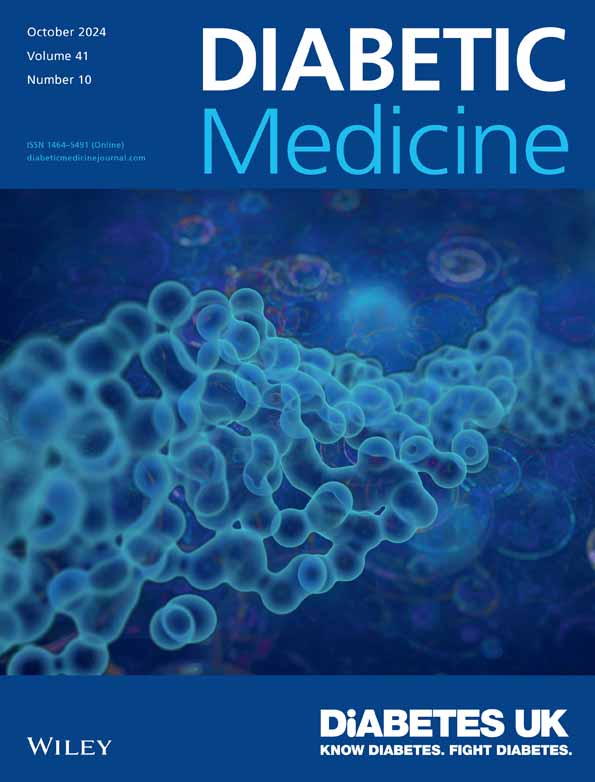Supporting women with diabetes experiencing menopause: A workshop to co-design research recommendations for improving the understanding of and support for women with diabetes experiencing menopause
Abstract
Aims
Based on direct feedback on the challenges faced by women with diabetes navigating menopause, the Diabetes Research Steering Groups (DRSGs), organised by Diabetes UK, conducted a workshop aimed at outlining key research priorities in this area. The statement will provide actionable recommendations for researchers and funders, ensuring future studies address the unique needs and lived experiences of women living with diabetes during this life phase. The DRSGs also highlighted the need to bring researchers and healthcare professionals in the field of diabetes together with those working in women's health to collaborate in this field. The goal is to bridge the gap in understanding and support, driving research that informs more effective care strategies and improves quality of life during this critical and often challenging life stage.
Methods
In November 2023, Diabetes UK convened a workshop on diabetes and menopause, bringing together 49 participants, including people with lived experience, researchers, healthcare professionals, and representatives from charities and funding bodies. The workshop began with presentations from experts and case studies, followed by small-group discussions facilitated by Diabetes UK staff. Participants were asked to identify key evidence gaps and refine research questions related to diabetes and menopause. Groups focused on thematic topics, discussing barriers and potential solutions. Insights from these discussions were collated and thematically analysed, resulting in key recommendations to address health inequalities in diabetes research.
Results
- Improving the understanding of the mechanisms underlying the impact of menopause on blood glucose control in women with diabetes
- Understanding the safety and efficacy of treatments, technology, and exercise in the management of diabetes and menopause
- Understanding how to best support women from underserved communities in their management of diabetes and menopause
- Understanding the impact of menopause on the mental health of women with diabetes and tailoring psychosocial interventions that support women during this period.
- Supporting healthcare professional education in how to effectively support women with diabetes experiencing menopause.
- Exploring how innovative models of care can support women with diabetes experiencing menopause more effectively.
Conclusions
This position statement presents recommendations to address the unmet needs of women with diabetes experiencing menopause. The diabetes research community is to act upon these recommendations to ensure the views and needs of this group are well-represented.

 求助内容:
求助内容: 应助结果提醒方式:
应助结果提醒方式:


